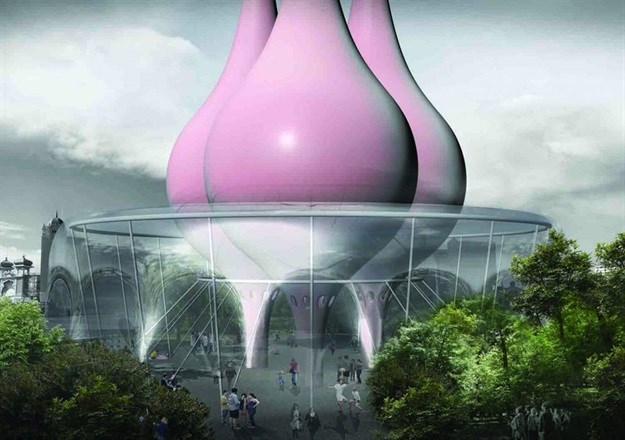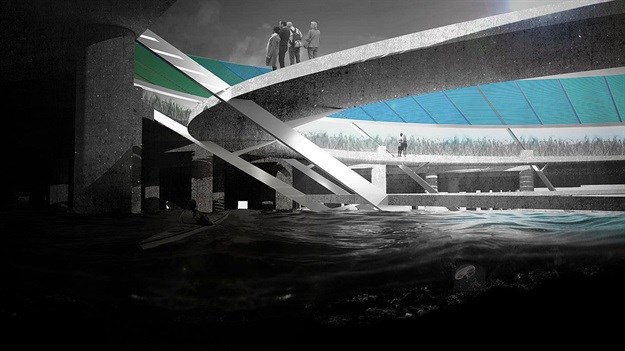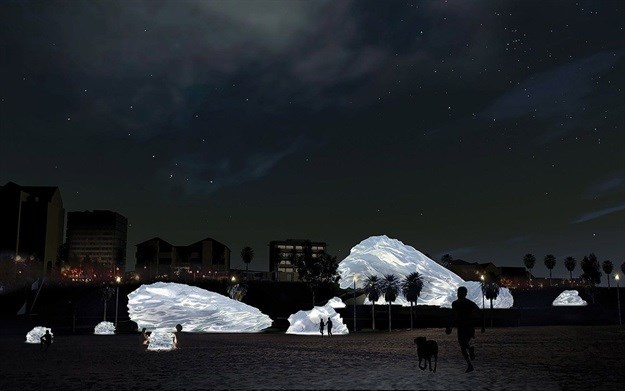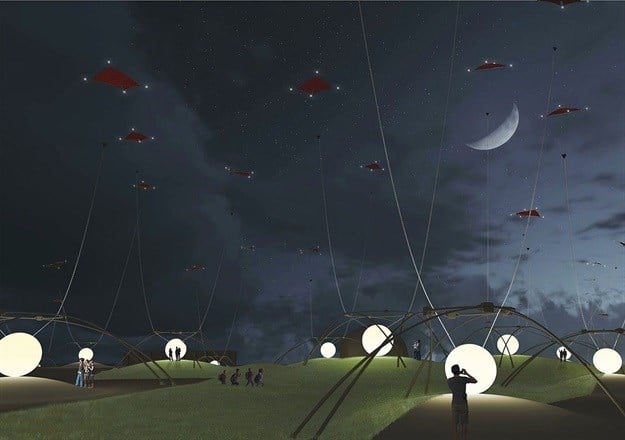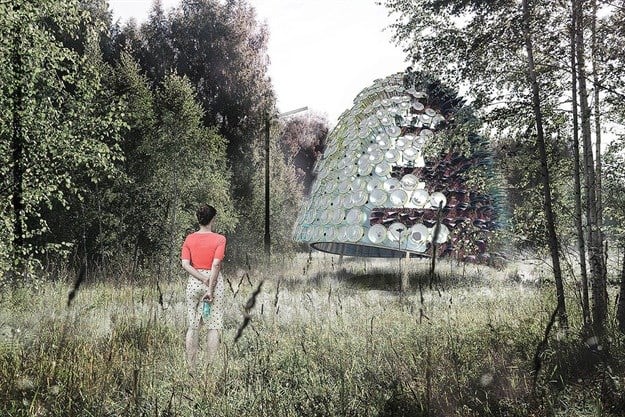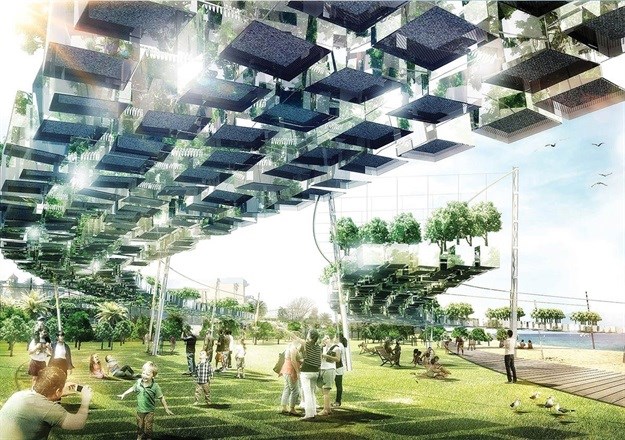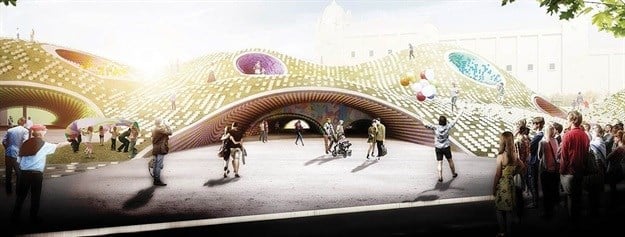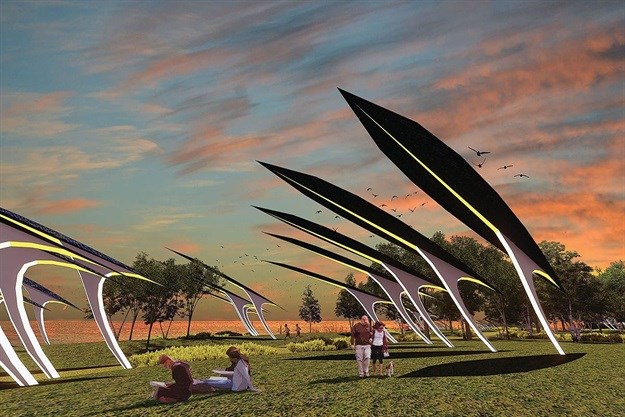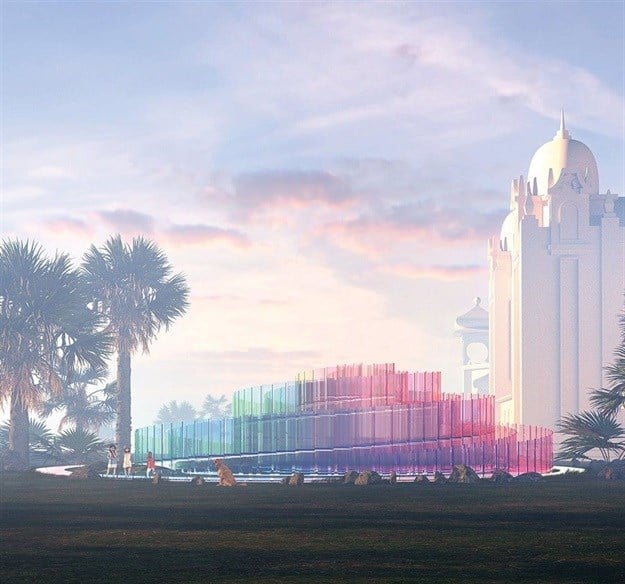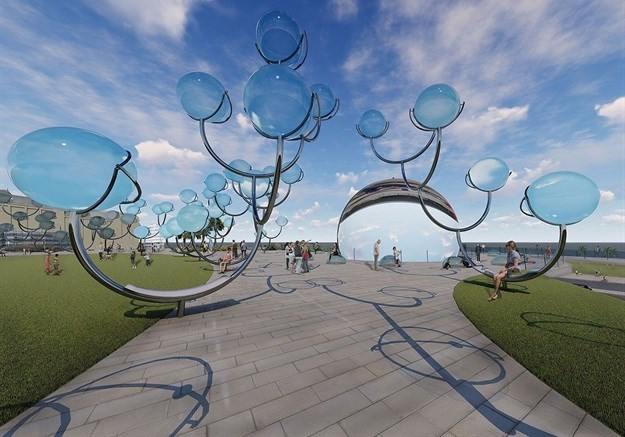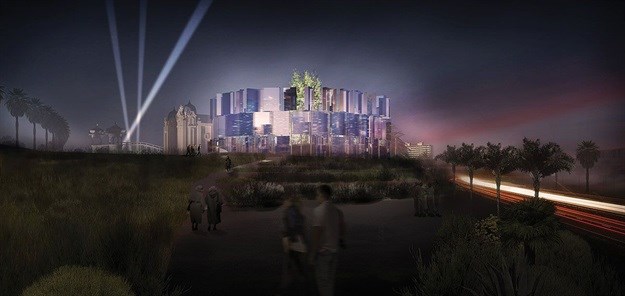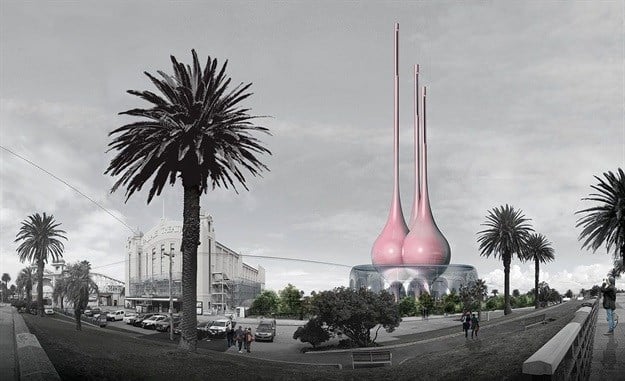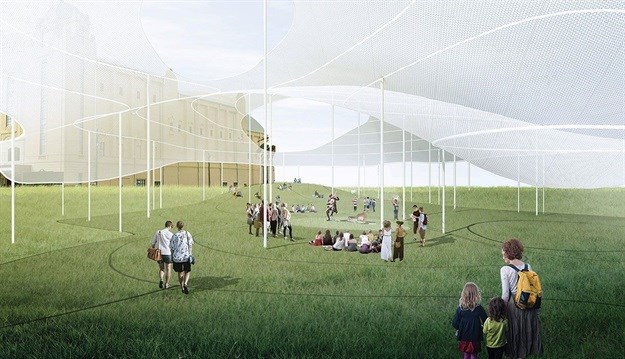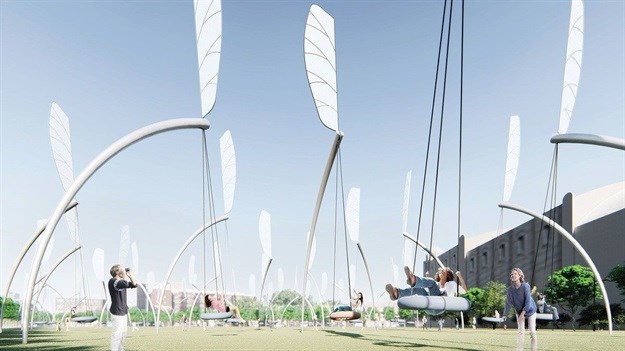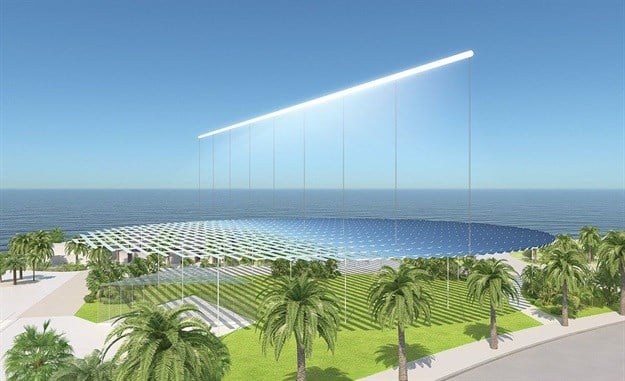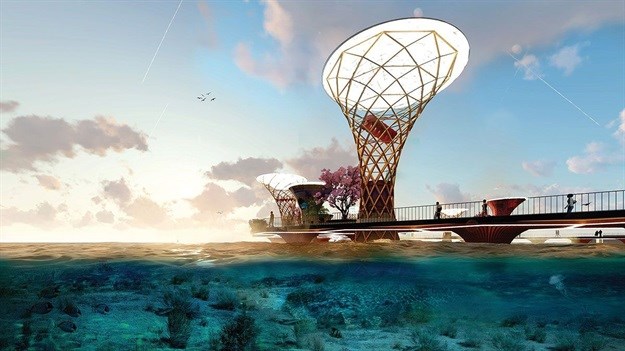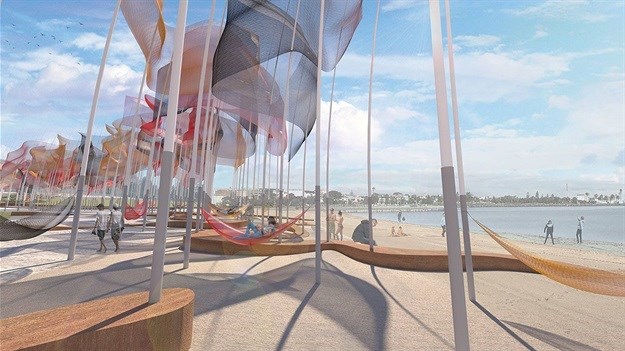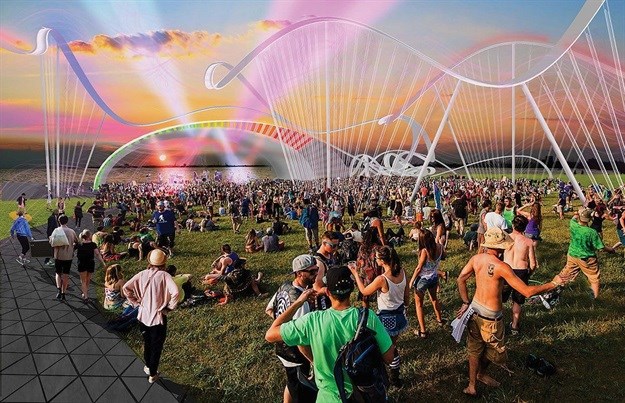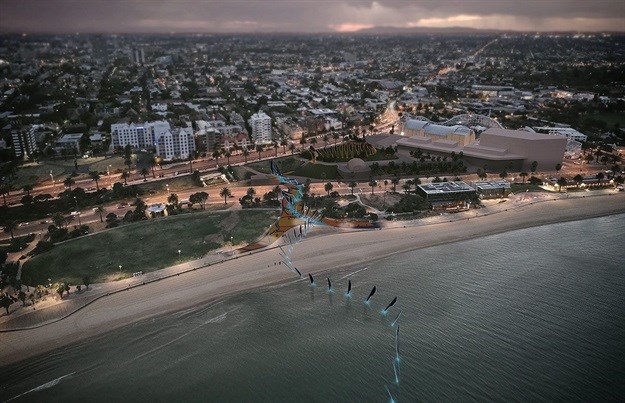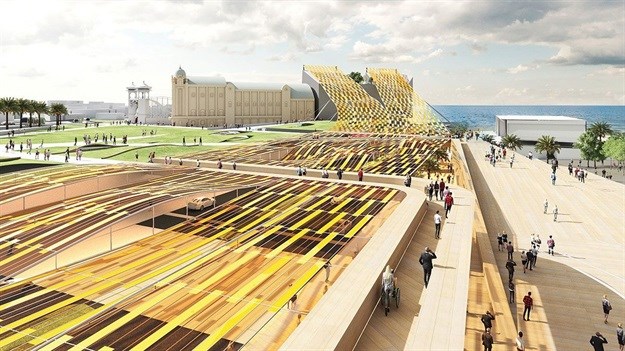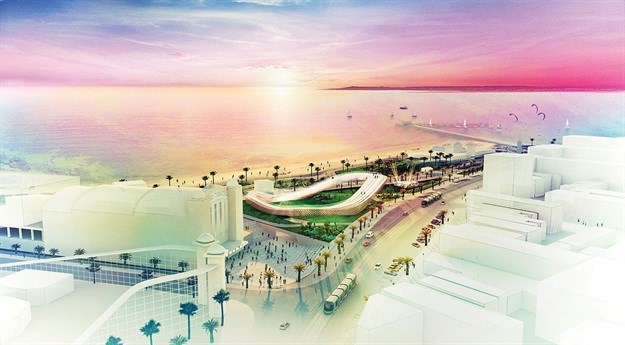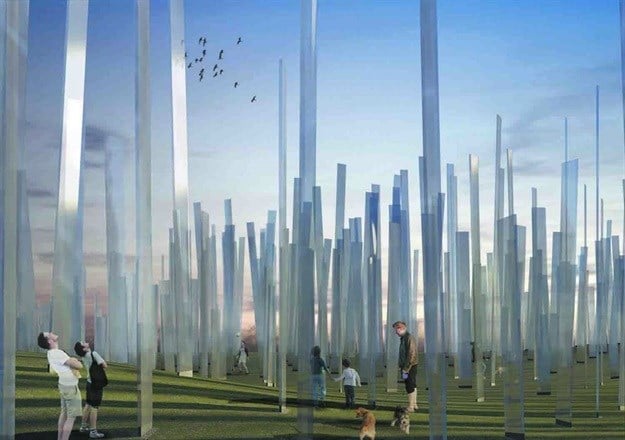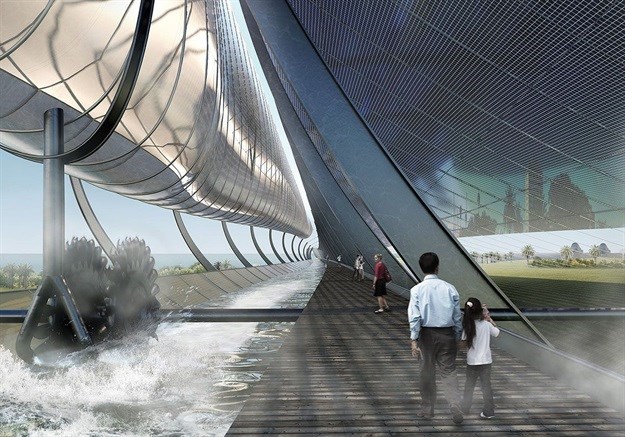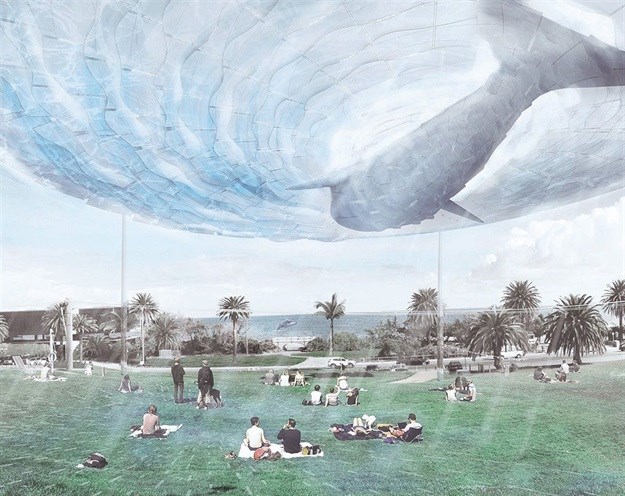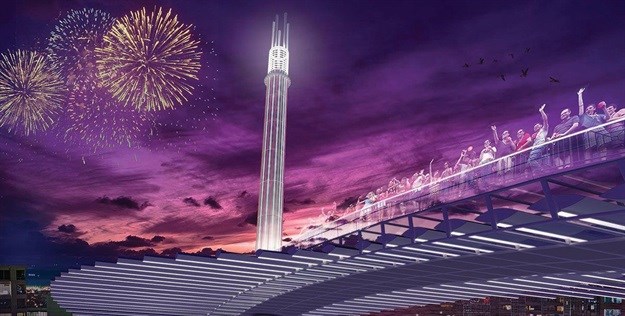Twenty five mesmerising land art projects have been shortlisted for the fifth edition of Land Art Generator Initiative (LAGI) competition at St. Kilda Triangle in Melbourne, Australia.
The Land Art Generator Initiative design competition calls on designers, landscape architects, and artists to create large-scale public art projects that will be able to produce clean energy for St. Kilda Triangle in Australia. After receiving entries from more than 50 countries, the 2018 LAGI jury has narrowed down the competition to a shortlist of 25 entries.
The competition, sponsored by the State of Victoria as part of Action 13 of the Victoria State Renewable Energy Action Plan, encourages participants to envision a clean energy landscape for a post-carbon world — a public artwork that will help to power the city and inspire the future.
Local passion
"We’ve never had so many local and regional teams dominate the shortlist before. It’s a testament to the passion that is held locally for the St Kilda Triangle site and the value placed on design and art in the context of climate solutions for Australia," said Elizabeth Monoian and Robert Ferry, co-founders of the Land Art Generator Initiative.
"Wouldn’t we all want to live in a city in which the sustainable energy systems that support our lives exist as creative and educational forms in our landscapes and public spaces?"
"The LAGI 2018 shortlist gives us a glimpse into this possible future. Each proposal demonstrates how existing and emergent clean technologies can accelerate an elegant transition to a new circular economy powered by renewables," they added.
All participants were tasked with superimposing an energy and art design onto a masterplan that has been developed since 2010 in concert between the City of Port Phillip Council and a deeply engaged community for this year's competition.
Creative educational experience
Each public art project is not only designed to produce emissions-free electricity, but also creates a creative educational experience for visitors to the historic bayside destination, in keeping with the city’s environmental, social, and cultural goals, according to the competition's statement.
"We really need things that will link people between the world we know and the world we know we need," said Guy Abrahams, Climarte co-founder, board member, and former CEO, a jury member for LAGI 2018.
"My hope is that the winning design will display imagination, creativity, and technical know-how, but also is something which, given the appropriate support, could actually be built," he added.
See the full 25 shortlisted projects below (in no particular order):
Sentinel: Marking Energetic Flows Through Time
Team: Anna McCuan, Jamieson Pye
Team location: Atlanta, GA, USA.
Energy technologies: dye-sensitised solar cells
(DSSC. Annual capacity: 2,500MWh)
Glass Boulders
Team: Luis Guzmán, Cody Anderson, Natalia Bezerra, Andrew Ioannou, Jiao Di, Rebecca Sutton, Mungki Dewi, Audrey Yeo
Team location: Edinburgh, UK
Energy technologies: luminescent solar concentrators
Annual capacity: 690MWh
Unwind
Team: David Donley, Michael Cinalli
Team location: Toms River, NJ, USA
Energy technologies: high altitude wind power (kite HAWP)
Annual capacity: 1,900MWh
Chrysalis
Team: Ruxandra Iancu-Bratosin, Rodrigo Rubio Cuadrado, Alessio Salvatore Verdolino, Alessandro Mattoccia
Team location: Madrid, Spain
Energy technologies: concentrated photovoltaic, kinetic wind harvesting, microbial fuel cell
Annual capacity: 30MWh
2000 Murnongs
Team: Azin Emampour, Xiao Lin, Qidi Li
Team location: Melbourne, Australia.
Energy technologies: spring-type piezoelectric generators, aerostatic flutter (Windbelt™)
Annual capacity: 150MWh
Wind Blossom
Team: Joo Hyung Oh, Jae Ho Yoon
Team location: Glendale, CA, USA
Energy technologies: micro wind turbines, kinetic energy harvesting pavers
Annual capacity: 960MWh
Stealing Fire
Team: Lendell Ervin, Jiawei Hou
Team location: Muncie, IN, USA
Energy technologies: thin-film multi-junction solar, piezoelectric energy harvesting
Annual capacity: 850MWh
The Rainbow Serpent
Team: Arthur Stefenbergs, Lucian Racovitan, Keith Mc Geough, Ovidiu Munteanu
Team location: Sydney, Australia
Energy technologies: luminesce
EN-Visible Wing
Team: Binghua Chen
Team location: Springfield, PA, USA
Energy technologies: organic photovoltaic (OPV)
Annual capacity: 550MWh
Solar Orbs
Team: Kaitlin Campbell, Chad Grevelding, Bridget Snover, Kyle Stillwell
Team location: Latham, NY, USA
Energy technologies: dual-axis tracking concentrated photovoltaic thermal (CPV+T) (similar to Rawlemon®)
Annual capacity: 550MWh
Rotor
Team: Louis Gadd, Aimee Goodwin, Danny Truong
Team location: Melbourne, Australia
Energy technologies: vertical axis wind turbines
Annual capacity: 105MWh
Breathing Totems
Team: Rafael Sánchez Herrera, Laura Camilla Mesa Arango
Team location: Bogota, Colombia
Energy technologies: thermal chimney with vertical axis wind turbines
Annual capacity: 800MWh
Head in the Clouds
Team: Yuxun Emmeily Zhang, Alexandra Siu, Liyang Zhang
Team location: Cambridge, ON, Canada
Energy technologies: transparent silicon solar mesh Sphelar®, aerostatic flutter wind harvesting Windbelt™
Annual capacity: 260MWh
Swings
Team: Lu Chao, Weng Shenxia
Team location: Guangzhou, China
Energy technologies: thin-film photovoltaic, kinetic wind harvesting (with human assist)
Annual capacity: 1,200MWh
Sun Ray
Team: Antonio Maccà
Team location: Padova, Italy
Energy technologies: linear Fresnel reflector
Annual capacity: 1,100MWh
The Canopy
Team: Kieran Kartun, Sonni Jeong, Matthew Wang
Team location: Allawah, NSW, Australia
Energy technologies: horizontal axis wind turbine, kinetic energy harvesting, concentrator photovoltaic (CPV), concentrated solar-thermal power (CSP), ocean tidal energy
Annual capacity: 2,200MWh
Dreamtime
Team: Kyle Taveira
Team location: Langhorne, PA, USA
Energy technologies: triboelectric energy harvesting fabric, piezoelectric stack actuators
Annual capacity: 100MWh
Soundscape
Team: Jordan Pulling, Patrick Alexander, Eric Bischof, Ryan Mackerer
Team location: Syracuse, NY, USA
Energy technologies: aerostatic flutter (Windbelt™), thin-film photovoltaic, kinetic energy harvesting pavers (Pavegen™ or similar), high-capacity sodium-sulfur battery
Annual capacity: 800MWh
Ngargee
Team: Soren Luckins, Ashleigh Adams, George Thompson, Kate Luckins, Alan Pears, Erin Pears, Peter Bennetts, Jasmine Sarin, Elder Arweet Carolyn Briggs, Rae Fairbairn, Dave Stelma
Team location: Melbourne, Australia
Energy technologies: amorphous silicon thin-film photovoltaic
Annual capacity: 400MWh
Team: Martin Heide, Dean Boothroyd, Emily Van Monger, David Allouf, Takasumi Inoue, Liam Oxlade, Michael Strack, Richard Le (NH Architecture); Mike Rainbow, Jan Talacko (Ark Resources); John Bahoric (John Bahoric Design); Bryan Chung, Chea Yuen Yeow Chong, Anna Lee, Amelie Noren (RMIT students).
Team Location: Melbourne, Australia
Energy technologies: flexible mono-crystalline silicon photovoltaic, wind energy harvesting, microbial fuel cells
Annual capacity: 2,220MWh
St Kilda Halo
Team: Pete Spence, Hiroe Fujimoto, Sacha Hickinbotham, Michael Richards, Alison Potter, Jason Embley (Grimshaw Architects)
Team location: Melbourne, Australia
Energy technologies: silicon photovoltaic thin-film (Sphelar®)
Annual capacity: 2,000MWh
PITCH!
Team: Bryan Fan, Shelley Xu
Team location: Melbourne, Australia
Energy technologies: luminescent solar concentrator (LSC) photovoltaic (ClearvuePV® or similar)
Annual capacity: 100MWh
Night & Day: St Kilda Hydro-Solar Generator
Team: Kevin Kudo-King, Annie Aldrich, James Juricevich, Evan Harlan, Vikram Sami, Erin Hamilton, Gabriela Frank, MacKenzie Cotters, Lauren Gallow, Jonathan Nelson (Olson Kundig)
Team location: Seattle, WA, USA
Energy technologies: mono-crystalline silicon photovoltaic, pumped hydro storage
Annual capacity: 1,000MWh
A New Citizen of Melbourne Who Lives at a Piece of Sea in the Sky
Team: Zhang Hao, Chen Bocong, Zhu Jing, Yang Qiurun
Team location: Shenzhen, China
Energy technologies: thin-film photovoltaic, vertical axis wind turbines
Annual capacity: 400MWh
Sol Tower
Team: Tae Jung, Amit Vajaria, Pauline Sipin, Kevin Cheng, Yong Lee, Glenn Sanford, Javier Oliu
Team location: Rockville, MD, USA
Energy technologies: solar updraft tower, solar thin-film photovoltaic, Vortex Bladeless™ wind turbine
Annual capacity: 450MWh
The winning entry will be announced during a LAGI exhibition launch at Fed Square in Melbourne on 11 October 2018.
Article originally published on World Architecture Community.





































